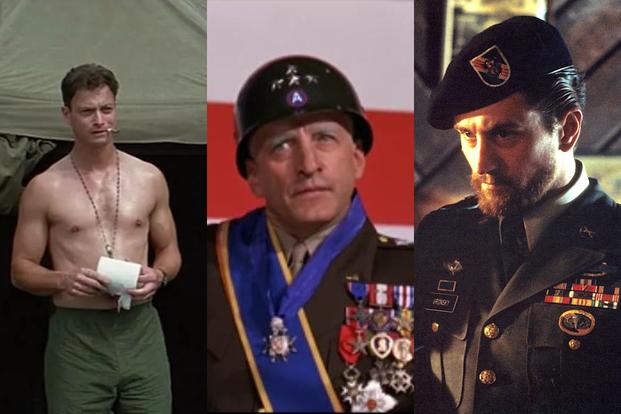Hollywood loves the military. War stories come with plenty of drama and heroism, the kind of tales that have generated great box office and won over both critics and fans.
Over the past nine decades that the Motion Picture Academy has handed out awards, nearly a third of Best Picture Oscar winners have had strong military themes.
That’s 29 out of 92 total winners so far. Yeah, “Saving Private Ryan” got robbed. But there’s still an impressive array of winners and probably more than a few that you’ve never heard of.
Let’s break it down into categories, since not all military stories are about combat. We’ve got movies about war, movies about the homefront, movies about veterans and movies about espionage.
Five of these movies are included in a new Paramount Blu-ray and Digital collection called “10 Best Pictures: The Essential Collection.” “Forrest Gump,” “Wings,” “Gladiator,” “The English Patient” and “The Godfather” are included with the non-military titles “Titanic,” “No Country for Old Men,” “Terms of Endearment,” “American Beauty” and “My Fair Lady.”
Not every Best Picture winner turns out to be a classic, but these military winners are some of the most memorable ever honored by the academy in our comprehensive list.
Modern War Movies
Wings (1928)

“Wings” is the first-ever Best Picture winner and features some of the greatest aerial battle footage ever committed to film. One of the last massive hits of the silent movie era, the film follows a pair of World War I aviators and a tragic case of mistaken identity during wartime.
All Quiet on the Western Front (1930)
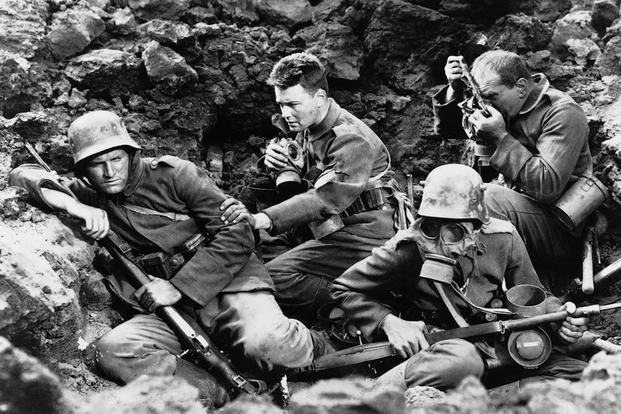
Based on Erich Maria Remarque’s classic novel, “All Quiet on the Western Front” is a harrowing tale of World War I combat from the perspective of a German soldier. The story so effectively portrays the battlefield horrors of the Great War that the Nazis banned it after they came to power. The movie’s final butterfly scene is one of the greatest war movie moments ever.
The Bridge on the River Kwai (1957)
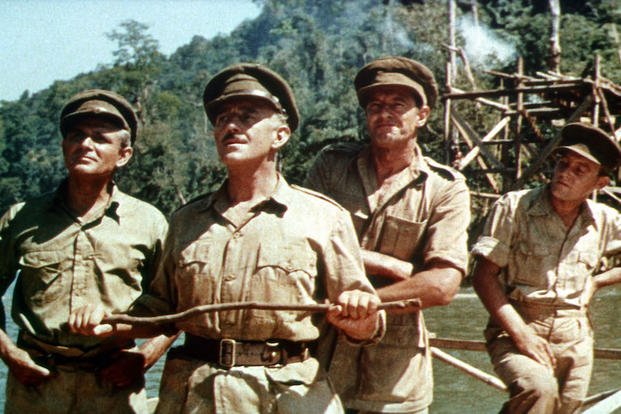
British POWs are sent to a Japanese-run camp in Burma and forced to build a railroad bridge. A British officer gets carried away with his need to maintain order and discipline in the ranks and becomes an ally of his captors as he devotes himself to building the best bridge possible. Based on a novel by the French author Pierre Boulle (who also wrote “Planet of the Apes”), “The Bridge on the River Kwai” was inspired by an actual Japanese project, but the story is almost entirely fictional. Alec Guinness won a Best Actor Oscar, and David Lean followed his Best Director Oscar here with another great war movie.
Lawrence of Arabia (1962)
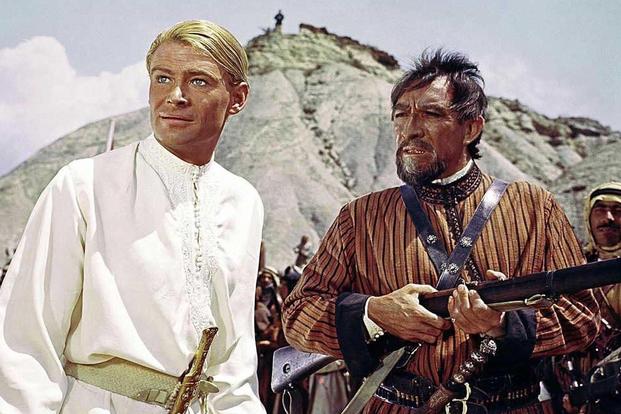
Lean won his second Best Director Oscar for this epic tale of British soldier T. E. Lawrence’s exploits in the Middle East during World War I. Acting as a military adviser to Arab leaders, Lawrence helps them strike blows against the Ottoman Empire. It’s one of the great films ever made in any genre and demands to be seen on a big screen if you ever have the chance.
Patton (1970)

Gen. George S. Patton was a brilliant but complicated leader and the perfect subject for a dramatic movie about World War II. Eisenhower may have been the steady leader who led the Allied Forces to victory in Europe, but Patton was the wild card who delivered on the battlefield. Released at the height of protest against the Vietnam War, “Patton” reminded moviegoers of an era when the country’s motivations were clear as it fought a necessary war.
The Deer Hunter (1978)
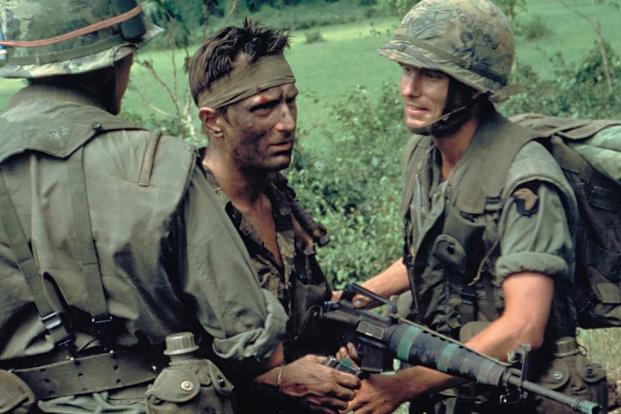
Released only eight years after “Patton,” “The Deer Hunter” harrowingly portrays the confusion and post-traumatic stress experienced by young men who served in Vietnam. Is the story 100% factual, especially the scenes in which soldiers are forced to play Russian roulette with a handgun? Probably not, but the movie gets at truths about the burdens of combat in a way that no other ever has.
Platoon (1986)

Vietnam veteran Oliver Stone based his screenplay on his own experiences as an infantryman in the conflict and has said that his movie is inspired by his distaste for John Wayne’s 1968 movie “The Green Berets.” Stone won a Best Director award that year but lost out on a Best Original Screenplay award, partially because he was competing against his own screenplay for “Salvador” that year. “Platoon” fulfills the wish of every enlisted soldier who ever fantasized about fragging an incompetent officer in combat. There’s not nearly as much satisfaction as viewers might hope when the moment of truth actually comes.
Schindler’s List (1993)
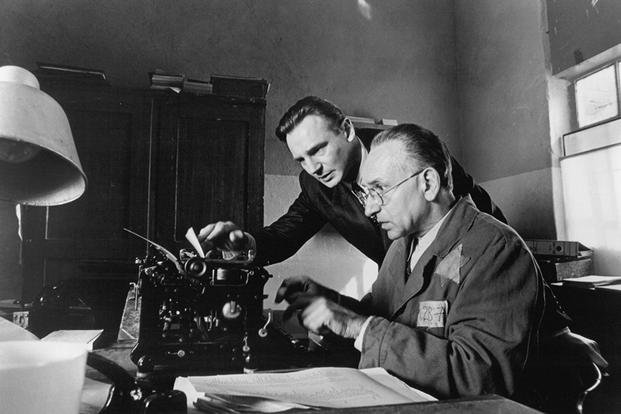
Steven Spielberg confronted the Holocaust straight on in his movie about Oskar Schindler, a German manufacturer (and Nazi Party member) who undergoes a change of heart and spends his fortune to help Polish Jews escape from being sent to concentration camps. “Schindler’s List” effectively portrays the horrors of the German genocide without explicitly focusing on the specifics. The peril is ever-present for everyone in the movie, and, somehow, that shadowy threat drives home the movie’s point better than it would if the film emphasized the day-to-day torture of the camps.
The English Patient (1996)
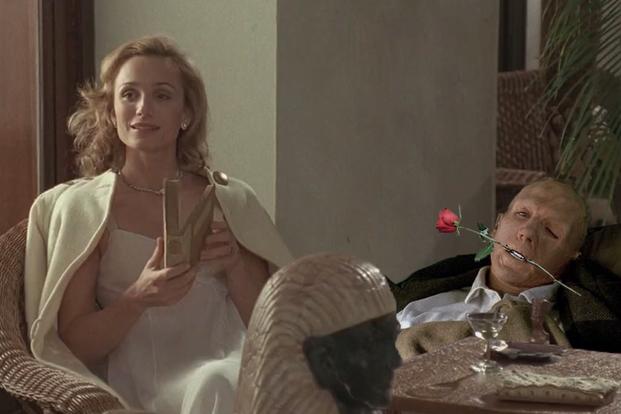
“The English Patient” is the most romantic movie ever to take place in a burn ward. Almásy, a dying and disfigured soldier, tells a French-Canadian nurse and a Canadian intelligence officer the story of his life in Egypt in the days before the war. He had an epic love affair with a married woman that ended badly for all involved, and our hero was burned after his plane was shot down by German anti-aircraft fire. While the lead character shares the name of a real-life Hungarian aristocrat and soldier, the story is entirely fictional.
The Hurt Locker (2009)
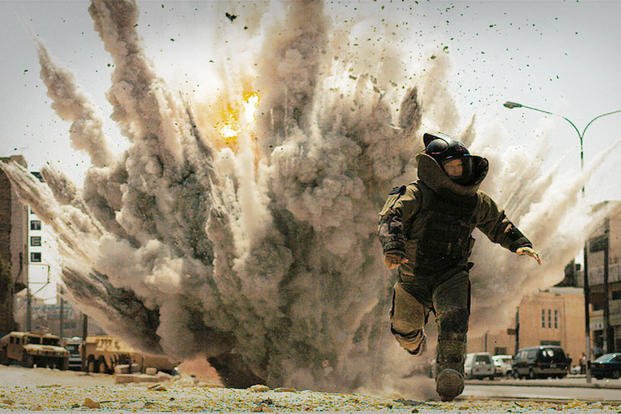
Buy a beer for an EOD veteran at any VFW in the country, and eventually you’ll have to talk about all the technical errors in “The Hurt Locker.” Writer Mark Boal and director Katherine Bigelow used the story of bomb disposal technicians in the Iraq War to make a highly effective action movie that keeps tensions at a high level throughout.
Related: Hurt Locker is a Blast Without the Spark
Ancient War Movies
Braveheart (1995)
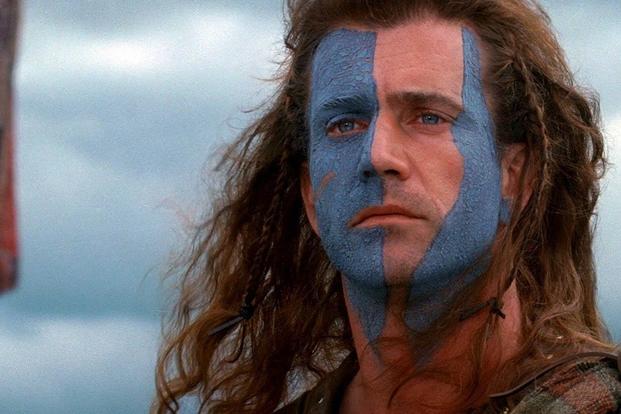
Mel Gibson stars in and won an Oscar for directing this tale of 13th-century Scottish warrior William Wallace. When the king of England, Edward Longshanks, invades Scotland, Wallace develops a personal grudge against the king and leads a rebellion against his rule. Scottish noble Robert the Bruce eventually will lead his country, but it’s Wallace who inspires the natives to resist.
Related: William Wallace Leads the Resistance in 'Braveheart,' Now Reissued in 4K
Gladiator (2000)
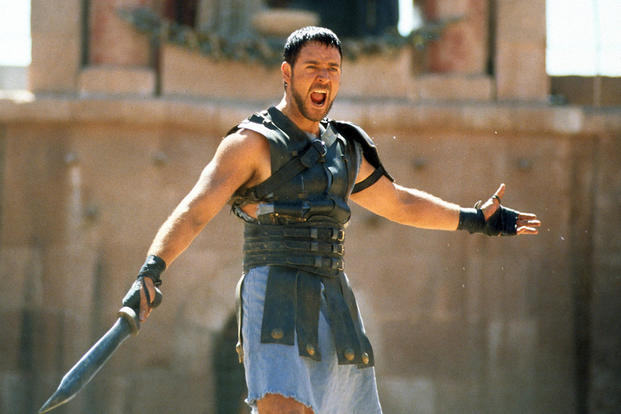
21st-century warriors have adopted “Gladiator” hero Gen. Maximus Decimus Meridius as a lodestar, since the idea that loyalty to country trumps loyalty to its leaders has become particularly fashionable in our post-9/11 times. Maximus will not bow down to an illegitimate leader, is made a slave as punishment and remakes himself as one of the nation’s great arena warriors. It all ends with a fantastical final battle against the emperor on the killing floor of the Colosseum. The whole thing works when you’re actually watching it.
Related: Serve Your Nation Not Your Leader: 'Gladiator' Arrives on 4K
The Lord of the Rings: The Return of the King (2003)

Is it really an ancient war or something from a parallel universe? The climax to the most successful fantasy movie series of all time features some of the greatest battle scenes ever committed to film. Director Peter Jackson and his effects crew absolutely were pushing the limits of CGI two decades ago when they made this movie, and despite all the technical advances we’ve made since, those scenes still look amazing today.
Forrest Gump
Forrest Gump (1994)
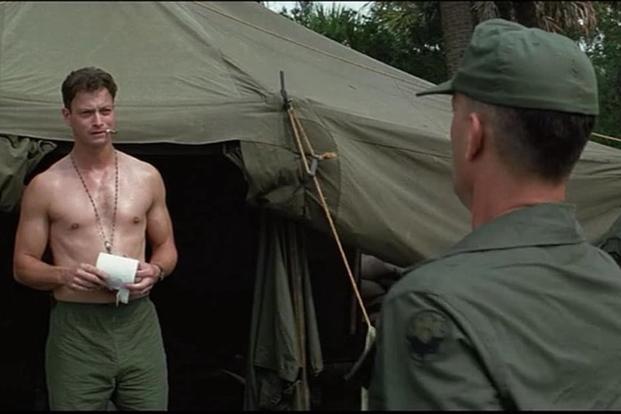
Some might point out that the Vietnam War represents only a sliver of Forrest Gump’s life story, but they’d be missing the entire point of the movie. “Forrest Gump” is really about Lt. Dan Taylor and his journey to recover from his own war injuries. Gary Sinise gives the performance of his career as Lt. Dan, and the response to the role inspired him to commit to a life of service in support of veteran causes. In some ways, this is the movie on our list that’s had the most real-life impact.
Related: 5 Things You Didn’t Know About Lt. Dan From ‘Forrest Gump’
Returning Veterans
Grand Hotel (1932)
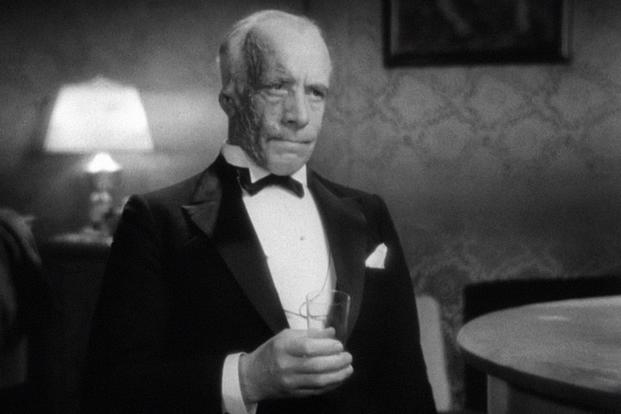
“Grand Hotel” tells several interwoven stories about guests at Berlin’s finest hotel in the years after World War I, but this mostly forgotten movie is most notable for Lewis Stone’s performance as long-term hotel resident Dr. Otternschlag. This Great War veteran acts as sort of a Greek chorus for the other stories in the movie, but he’s most memorable as a record of the kind of terrifying facial disfigurement that many surviving soldiers brought home from combat. Otternschlag doesn’t wear a mask, so none of the other characters (nor the audience) are spared from confronting his burden.
The Best Years of Our Lives (1946)

“The Best Years of Our Lives” remains the finest movie ever made about the struggles of returning veterans and their families. Real-life veteran Harold Russell, who lost both arms in combat, earned a Best Supporting Actor Oscar for his performance as a Navy veteran who lost both arms in combat and became the first non-professional actor honored by the academy. The movie was a gigantic box-office hit and helped Americans understand the ongoing challenges faced by the men who won the war.
The Godfather (1972)
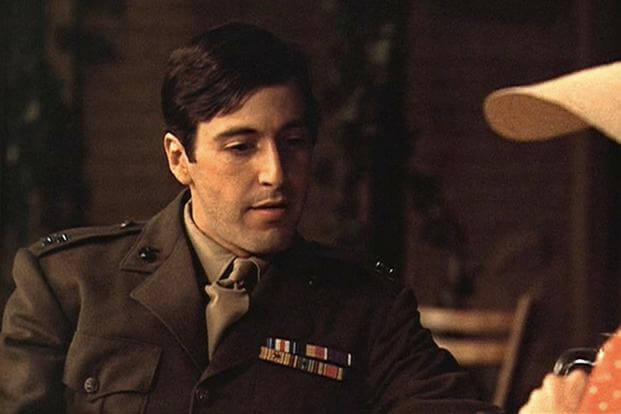
What else is “The Godfather” but a fable about the struggles of a World War II Marine Corps veteran to get his life on track but instead falling into a pattern of violence? All his family’s dreams for Michael Corleone to live a successful life in mainstream society are shattered when he picks up a gun to avenge his father.
The Godfather: Part II (1974)
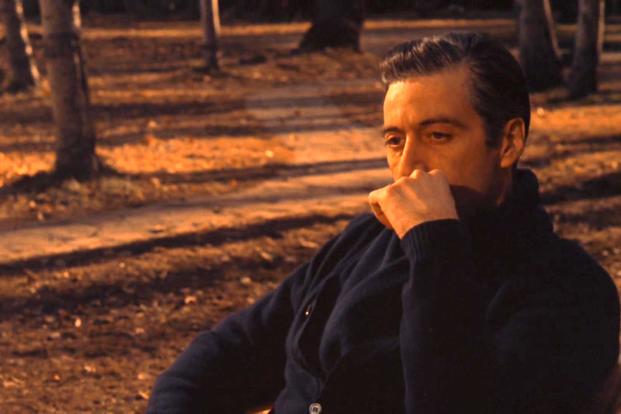
Still not buying it? What about those long scenes of Michael brooding alone in his Lake Tahoe den that define the sequel? Are you sure that Don Corleone isn’t really just a veteran who hasn’t figured out a way to process his post-traumatic stress?
Dances with Wolves (1990)
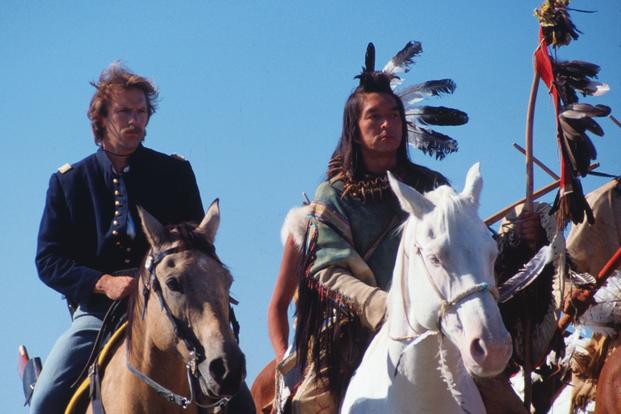
Speaking of PTSD, what about 1st Lt. John Dunbar’s failed suicide attack in “Dances with Wolves”? Kevin Costner plays (and won an Oscar for directing himself as) the Civil War veteran who requests a transfer to the western U.S. so he can try to recover from his wartime trauma. Dunbar befriends the Sioux and finds purpose as their ally, which leads to problems with his Army superiors. Dunbar must choose between his Army commission and the Sioux warriors who helped his recovery.
War in the Background
Cavalcade (1933)
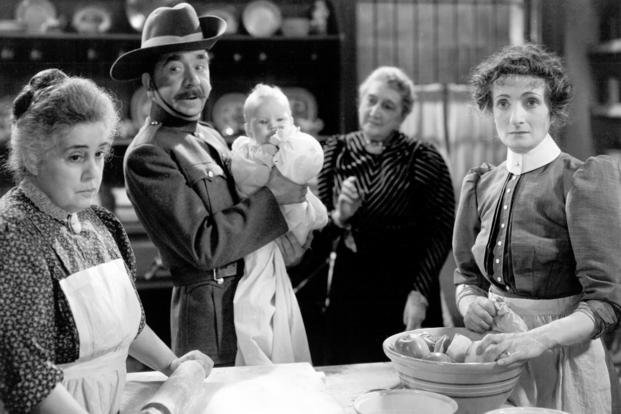
“Cavalcade” may be the most forgotten movie on this list, but the drama offers some insight into Britain’s military actions in the early years of the 20th century. Based on a play by Noel Coward, the film offers a series of vignettes that follow a close-knit group of Londoners from New Year’s Eve 1899 to New Year’s Day 1933. Those vignettes include the Second Boer War, the sinking of the Titanic and World War I. The action is more about the effects of those events on the characters than the events themselves, but war is a constant presence throughout the film.
Gone with the Wind (1939)
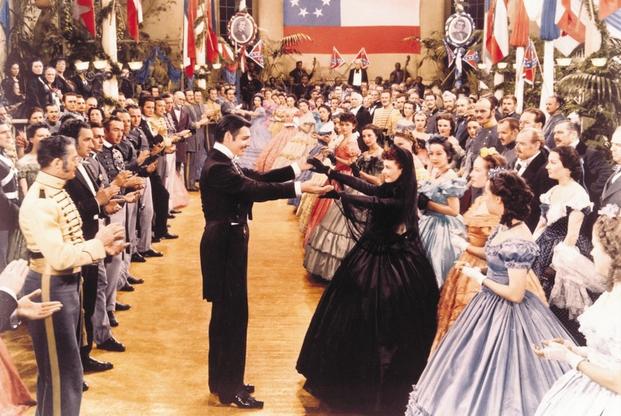
Can a movie be great and also greatly problematic? “Gone with the Wind” absolutely proves the thesis. This sweeping tale of Confederate heroism during and after the Civil War may be largely responsible for the continuing myth of the Lost Cause, but the drama, performances and heartbreak remain as powerful for new audiences as they were more than 80 years ago when the movie premiered. Enjoy the show but make sure you remember who won the war (and why).
Mrs. Miniver (1942)
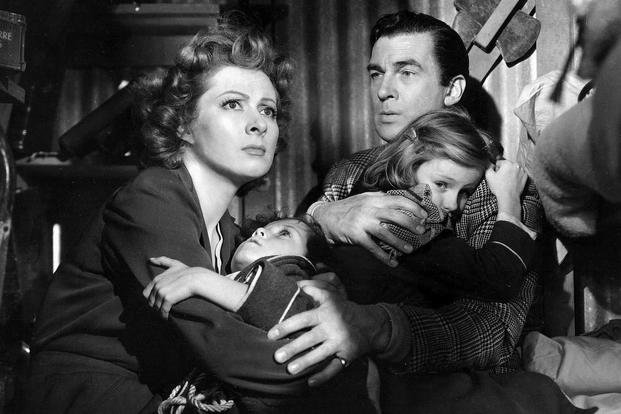
Not everyone in the United States was fully committed to the war even after the attack on Pearl Harbor, so let’s recognize “Mrs. Miniver” for its role in teaching American audiences about the struggles of English civilians during the war. Americans never would face the direct attacks on home soil that are portrayed in the film, and “Mrs. Miniver” went a long way toward creating the so-called “special relationship” between the United Kingdom and the United States that endured for decades after the war.
Casablanca (1943)
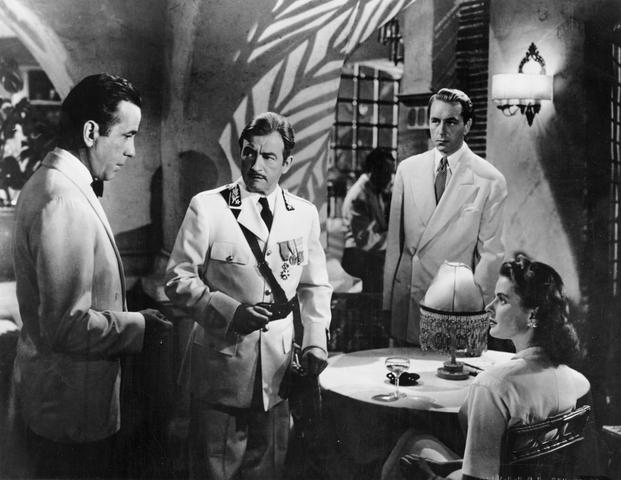
World War II looms large in the background as world travelers gather at Rick’s Café Américain as they pass through Morocco. Rick and Ilsa’s epic love story is really a way to talk about loyalty, resistance and duty as the world was processing the evil of the Nazi regime and beginning to think about how to deal with its collaborators.
From Here to Eternity (1953)
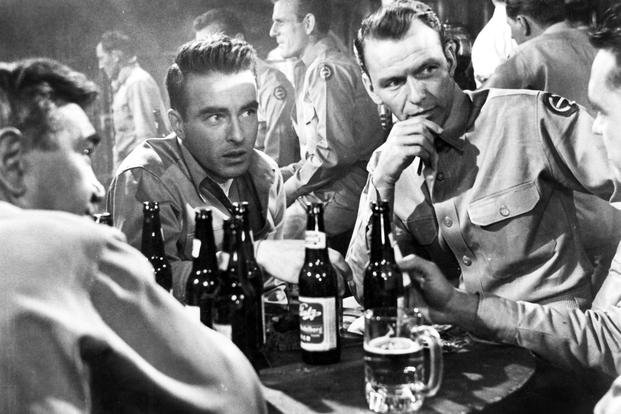
What was Pearl Harbor like in the days before Dec. 7, 1941? “From Here to Eternity” does a deep dive into the rivalries and romance on base. No one sees what’s coming. Frank Sinatra won a Best Supporting Actor Oscar for his performance in this movie, a role he allegedly got because his mob friends put the squeeze on the producers. While this may not actually be true, it did inspire the Johnny Fontane subplot in “The Godfather.”
The Sound of Music (1965)
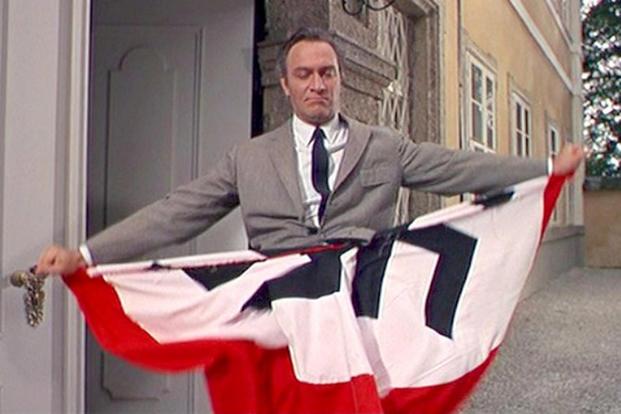
How do you solve a problem like the Nazis? You teach your family to sing and escape over the Alps. Julie Andrews stars as a failed nun who then fails as a governess when she conducts an illicit affair with her employer. All works out in the end. The adults marry, the kids accept her as their stepmom and they get away before the Germans can ship them all off to the camps.
The King’s Speech (2010)
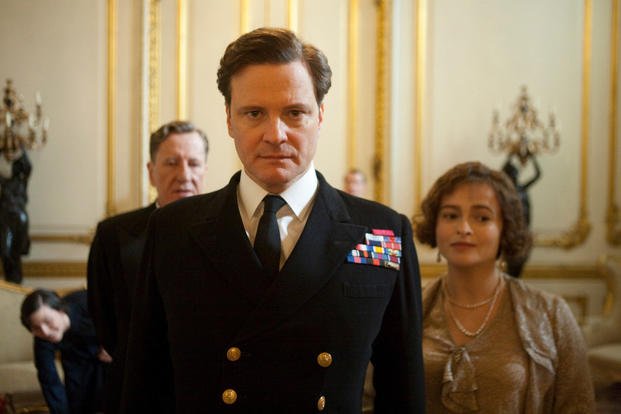
Prince Albert was settling happily into his adult life after his older brother took the British throne, and he was no longer needed as the “spare” in case the heir didn’t make it to adulthood. Then his brother started an “inappropriate” relationship with a divorcée and resigned the job. Albert became King George VI just as war was looming on the European continent. The film follows “Bertie’s” struggles to assume power and overcome his stammer. The movie climaxes as the king delivers a great radio speech after Britain declares war on Germany in 1939.
Chain of Command
Mutiny on the Bounty (1935)
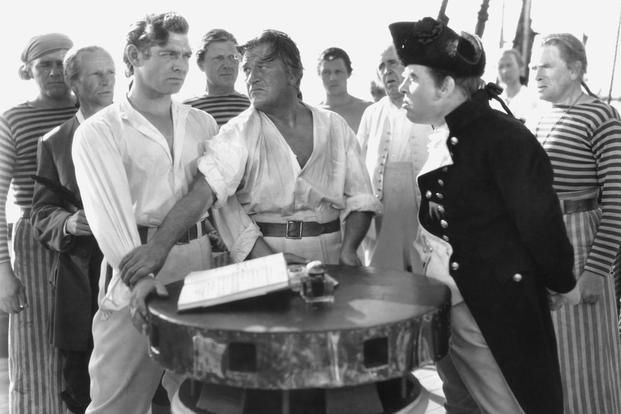
It’s an eternal question. What happens when an incompetent officer commands a ship or submarine that’s days away from any port? How does a crew survive when their leader is putting his sailors in constant danger? “Mutiny on the Bounty” is a fictionalized version of an actual British Navy incident in which a crew felt compelled to mutiny to save themselves from a toxic leader. Clark Gable gave his finest performance as rebel leader Fletcher Christian.
Spies
The Life of Emile Zola (1937)
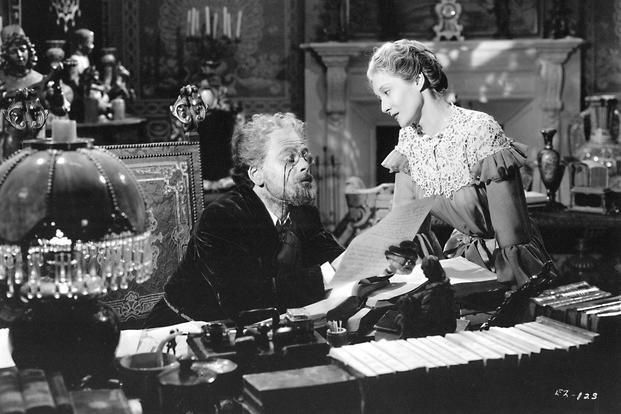
The “Dreyfus Affair” is one of the most shameful in French military history. There was a spy in the ranks, and the authorities convicted an innocent Capt. Alfred Dreyfus of espionage because he was Jewish, so of course, he did it. This movie follows French author Emile Zola as he learns of the case and takes up the cause of the wrongfully accused officer. After he’s charged with libel, Zola flees to England, but his reporting on the scandal leads to Dreyfus’ full exoneration.
Argo (2012)
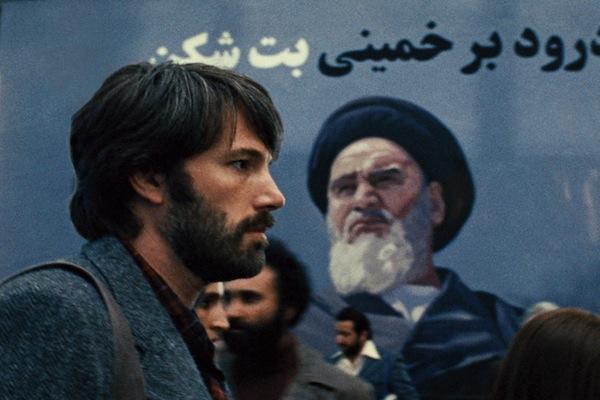
The amazing and heroic story about a successful extraction from Americans in Iran would have gone a long way to making Americans feel optimism and hope during the Iran hostage crisis, but the U.S. government kept the mission classified because they believed telling the story would endanger the hostages who still remained in the country. Most of us learned the truth more than 30 years later when “Argo” became one of the most entertaining movies ever to win Best Picture.
Keep Up With the Best in Military Entertainment
Whether you're looking for news and entertainment, thinking of joining the military or keeping up with military life and benefits, Military.com has you covered. Subscribe to the Military.com newsletter to have military news, updates and resources delivered straight to your inbox.
